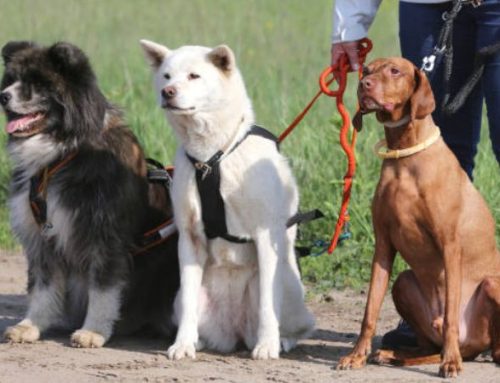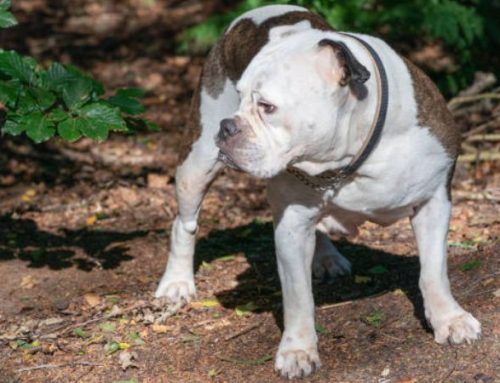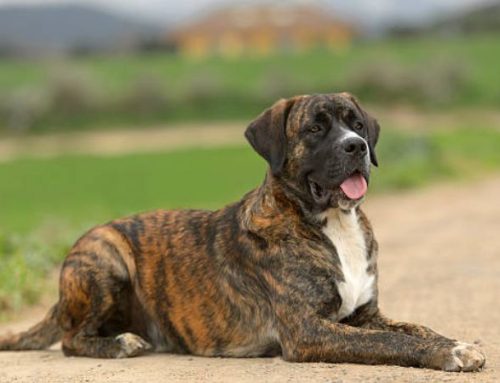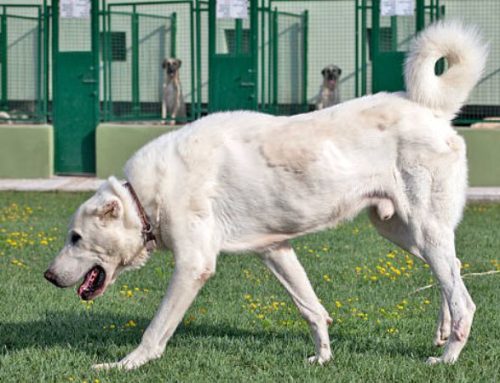At first glance, you might think someone shrunk a werewolf and taught it to purr—but the Lykoi is very much a cat, just not like any you’ve met before. Born from a rare natural mutation that gives them their signature patchy coat, these “wolf cats” have captured the curiosity of breeders, pet lovers, and the internet alike.
In the sections ahead, we’ll explore everything from their kitten-to-adult traits and expected lifespan to pricing and the big question on many allergy sufferers’ minds: are Lykoi actually hypoallergenic?
Introduction to the Lykoi Cat Breed
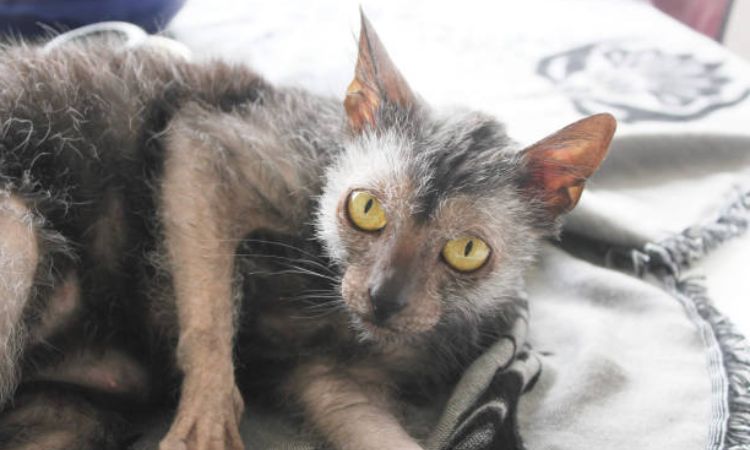
1. What Is a Lykoi Cat?
The Lykoi often nicknamed the “wolf cat” or “werewolf cat” is a domestic cat breed that arose from a naturally occurring genetic mutation. The name comes from the Greek word lykos, meaning “wolf,” chosen to reflect the breed’s wild, wolf-like appearance.
Their signature look comes from a spontaneous mutation that affects hair growth and distribution, resulting in partial hairlessness and a sparse, roan-patterned coat made up of both white and pigmented hairs. This gives the Lykoi a grizzled, patchy, or “molting” appearance that many people associate with miniature werewolves. Despite the dramatic look, this mutation is not linked to disease and is unrelated to hairlessness found in other breeds.
From completely coated to nearly bald, Lykoi cats can vary in how much hair they retain at a given time. They may even experience temporary phases of near-total hair loss—a quirky trait fans call “wolfing out.”
2. Lykoi vs. Other Cat Breeds
Although they may resemble hairless breeds at times, Lykoi cats are genetically distinct from the Sphynx and Devon Rex. DNA testing conducted by UC Davis confirmed they do not carry the genes responsible for those breeds’ coat types.
Unlike designer hybrids, the Lykoi developed naturally from domestic shorthair cats and was not created through crossbreeding. Their unusual coat is a standalone mutation rather than a variation of an existing hairless gene.
The breed is also relatively new and still considered rare. The first naturally occurring Lykoi cats were identified in 2010 and 2011 in Virginia and Tennessee. Intentional breeding began in 2011, with the first planned Lykoi kitten—named Daciana—born later that year. Since then, careful outcrossing and monitoring have kept the breed healthy while preserving its unique look.
Because Lykoi are still gaining recognition and breeding populations are small, they remain uncommon to see outside dedicated catteries and cat shows.
Lykoi Cat Characteristics and Appearance
Physical Traits: The Werewolf Look
The Lykoi cat is instantly recognizable due to its striking, wolf-like appearance.
- Coat: Lykoi cats feature a unique roan coat, a blend of pigmented and white hairs. Kittens are born with a full coat, but as they mature, their undercoat sheds, leaving a sparse topcoat. Their hairless facial areas – around the eyes, nose, mouth, and ears – form a distinctive “mask”, giving them a grizzled, wild look. Despite the bristly appearance, the coat is surprisingly soft.
- Undercoat: Unlike many breeds, Lykois lack an undercoat, which contributes to their patchy appearance and seasonal shedding cycles.
- Body Structure: These cats have lean, muscular, and graceful bodies. Their build is agile yet strong, perfect for climbing, pouncing, and exploring.
- Head and Facial Features: Lykois have a modified wedge-shaped head, tall, high-set ears, and large, walnut-shaped eyes that enhance their expressive, werewolf-like appearance. Their medium-length tail tapers to a point.
- Size: Lykoi cats are medium-sized, typically weighing 8–13 pounds, with males often slightly larger.
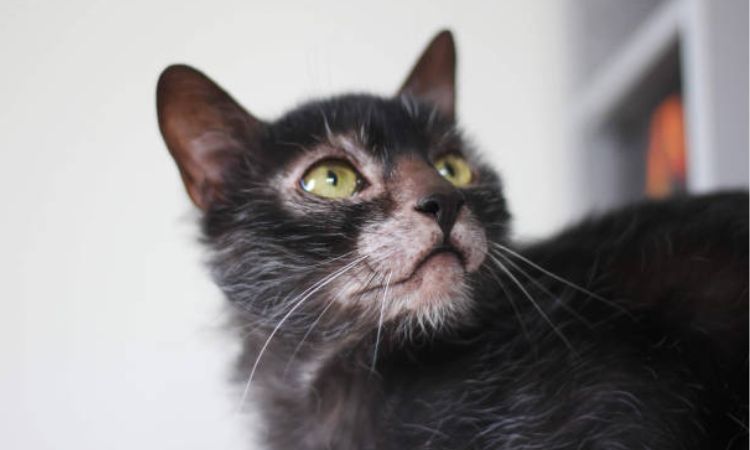
Personality and Temperament
- Friendly and Loyal: Lykois are affectionate with their families, forming strong bonds while being reserved with strangers at first.
- Active and Intelligent: Highly curious and energetic, these cats are often described as dog-like. They love interactive play, hunting toys, and exploring their environment. Some even enjoy learning tricks or playing fetch.
- Playful and Adventurous: Their high energy levels make them ideal for families who can provide mental stimulation, climbing spaces, and plenty of toys.
- Vocalization: Lykois communicate with a variety of chirps, trills, and expressive meows, using their voice to convey excitement, curiosity, or attention-seeking behaviors. They are rarely overly vocal unless neglected.
Lykoi Cat Lifespan and Health
Lifespan of the Lykoi Cat
Lykoi cats are generally healthy and long-lived, with an average lifespan ranging from 12 to 15 years, which is similar to most domestic house cats. With proper nutrition, regular veterinary care, and a safe, enriched environment, Lykois can live full, active lives well into their teens.
Factors that can influence lifespan include:
- Diet and nutrition: A high-quality, balanced cat food formulated for their life stage is essential.
- Veterinary care: Regular check-ups, vaccinations, parasite prevention, and dental care can prevent common feline health issues.
- Environment: Keeping Lykois indoors or in a secure, shaded outdoor space helps protect them from hypothermia, sunburn, and injuries.
Common Health Considerations
Although Lykoi cats are a generally healthy breed, their unique sparse, patchy coat and genetic background require some special attention.
1. Skin and Coat Health
The Lykoi’s partially hairless coat results from a natural mutation known as hypotrichosis, which reduces the number of hair follicles per group. This leads to the characteristic sparse fur and exposed skin. Because of this:
- Bathing is necessary once or twice a week to prevent oil buildup and blackheads.
- Sun protection is crucial, as their exposed skin can burn or darken if overexposed.
- Lykois shed periodically, a process known as “wolfing out,” which can leave them nearly bald temporarily.
Regular brushing and gentle grooming help maintain healthy skin and reduce hair-related issues around the house.
2. Lymphocytic Mural Folliculitis
A condition documented in Lykois is lymphocytic mural folliculitis, which affects the hair follicles. Symptoms may include:
- Crusty or scaly patches on the head, neck, and belly
- Sores on the lips or eyelids
- Dry or cracked paw pads
If these signs appear, veterinary care is recommended to determine the cause and provide appropriate treatment.
3. Dental Health
Dental disease is a common concern for all cats, including Lykois. Plaque buildup and gingivitis can cause pain, tooth loss, and systemic health problems. Preventive measures include:
- Daily tooth brushing
- Regular veterinary dental check-ups
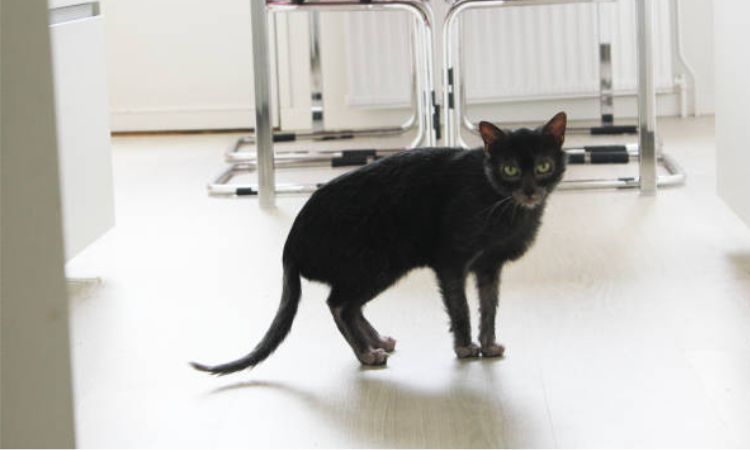
4. General Health
Lykois are not predisposed to major breed-specific diseases, thanks to careful breeding practices. However, they can still experience the same health conditions as other domestic cats, including:
- Upper respiratory infections
- Gastrointestinal issues
- Parasite infestations (fleas, ticks, worms)
Pet insurance is recommended to help cover unexpected health expenses.
Veterinary Care Recommendations
To ensure your Lykoi remains healthy throughout its life:
- Annual check-ups with a licensed veterinarian
- Core vaccinations (feline herpesvirus, calicivirus, panleukopenia, and rabies where required)
- Parasite prevention for fleas, ticks, and worms
- Heartworm prevention, particularly in areas with high risk
- Routine blood work and physical exams for early detection of issues
Because Lykois are still a rare and relatively new breed, genetic testing can help ensure kittens are healthy and free from inherited defects.
Special Considerations for Lykoi Health
- Prey drive: Lykois retain a strong hunting instinct, so small pets may be at risk.
- Temperature sensitivity: Sparse fur means they are prone to hypothermia in cold environments; provide warm bedding or heated spaces.
- Allergies: Despite their partially hairless coat, Lykois are not hypoallergenic. Families with cat allergies should exercise caution.
With proper care, the Lykoi’s natural athleticism, intelligence, and social personality make them an engaging and long-lived companion.
Lykoi Cat Price Guide and Ownership Cost
Initial Lykoi Kitten Cost (Purchase Price)
Lykoi cats, often called the “werewolf” cat, are rare and highly sought-after, which is reflected in their purchase price. When acquiring a kitten from a reputable breeder, prices typically range from $1,500 to $3,000. Several factors can influence the cost, including:
- Pedigree and Lineage: Cats from well-documented bloodlines or show-quality parents generally command higher prices.
- Coat Quality and Color: Unique coat patterns or exceptionally striking “roan” coloring may increase value.
- Location: Prices can vary based on your region and the availability of breeders nearby.
- Show Rights: If a breeder provides rights to show the kitten in cat competitions, this may add to the overall cost.
While rare, Lykoi cats may occasionally appear in shelters or rescues. Adoption fees in these cases are usually lower, around $100–$400, but competition for these cats can be fierce, given their unusual appearance and popularity.
Breakdown of First-Year and Ongoing Expenses
Owning a Lykoi cat involves more than the initial purchase price. Responsible pet owners should consider both one-time costs and recurring monthly expenses to provide proper care.
1. One-Time Costs
These are initial expenses that prepare your home for your new Lykoi kitten:
- Spay/Neuter: $30–$250 depending on age and location
- Initial Vet Visits and Vaccinations: $100–$400
- Supplies: $250–$450 for essentials like:
- Cat bed
- Litter box and scoop
- Food and water bowls
- Toys and scratching posts
- Grooming supplies (brush, shampoo, nail clippers)
- Carrier and ID tags
- Microchip: $45–$55
2. Monthly / Recurring Costs
Ongoing care is essential for the health and happiness of your Lykoi cat:
- Food: $30–$150 per month, depending on whether you choose high-quality dry, wet, or raw food
- Litter and Litter Maintenance: $25–$50 per month
- Pet Insurance: $0–$60 per month, depending on coverage
- Grooming and Skin Care: $10–$40 per month for baths, ear cleaning, and coat maintenance
- Routine Veterinary Care and Medications: $20–$300+ per month if your cat has health needs
- Entertainment and Enrichment: $20–$50 per month for toys, climbing towers, and interactive play
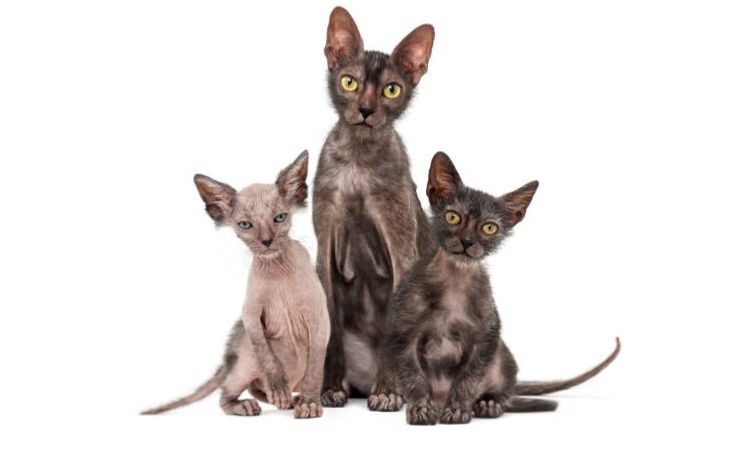
3. Budgeting for a Lykoi Cat
The total monthly cost of caring for a Lykoi generally ranges from $195 to $800+, depending on your cat’s health, diet, and lifestyle preferences. Budgeting ahead is essential, as some cats may have unique needs, require special vet care, or prefer specific foods and toys.
To manage costs effectively:
- Buy food and litter in bulk to save money
- Look for discounts on supplies and toys
- Consider pet insurance to offset unexpected vet bills
- Reuse or make safe DIY toys and beds where appropriate
While Lykoi cats are a premium breed, with careful planning, their monthly costs are comparable to other small to medium cat breeds. Investing in high-quality supplies, proper nutrition, and regular veterinary care ensures your “wolf cat” stays healthy, happy, and thriving for years to come.
Are Lykoi Cats Hypoallergenic?
No, Lykoi cats are not hypoallergenic. Despite their sparse, patchy coat, they produce the same common cat allergens as other breeds—mainly through saliva, skin, and dander. People who are sensitive to cats may still experience allergy symptoms around Lykois, including sneezing, itchy eyes, nasal congestion, and skin reactions.
Their unique coat doesn’t reduce allergen production; in fact, more exposed skin can sometimes release allergens into the environment more easily. Potential owners with allergies should spend time around a Lykoi before adopting to see how their body reacts and consider preventive measures like regular bathing, cleaning, and air filtration.


